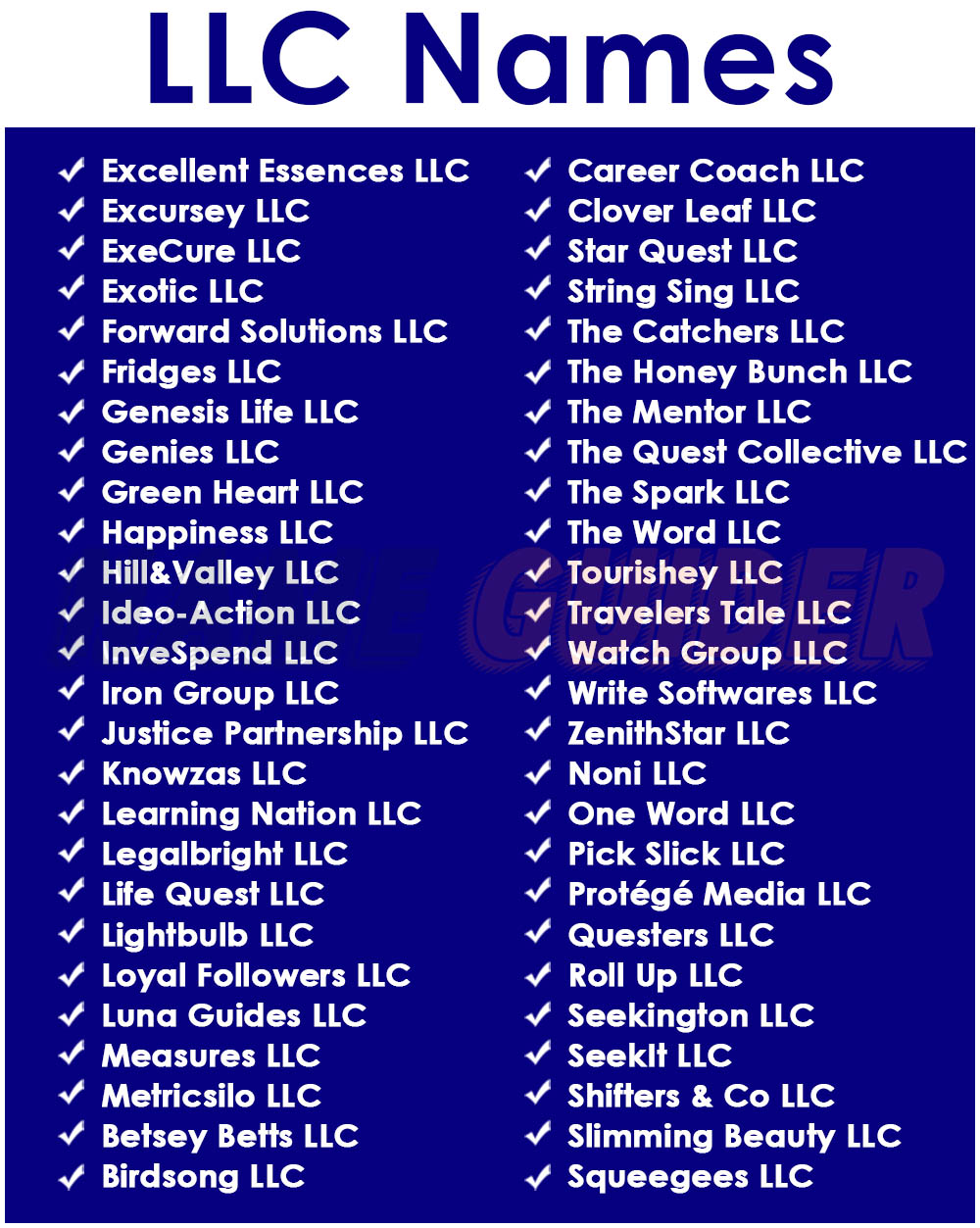Decoding the LLC: Examples and Business Structures

Ever wonder how entrepreneurs shield their personal lives from business risks? The answer often lies in the structure they choose for their ventures. One of the most popular choices is the Limited Liability Company, or LLC. But what exactly *is* an LLC, and what kinds of businesses thrive under this structure?
An LLC is a business structure that combines the pass-through taxation of a sole proprietorship or partnership with the limited liability of a corporation. This hybrid approach offers a compelling blend of simplicity and protection, making it a popular choice for entrepreneurs and small business owners. Imagine the peace of mind knowing your personal assets are separate from your business debts and liabilities. That’s the core benefit of an LLC structure.
Let’s delve into some LLC business examples. Think of your local coffee shop, a freelance photographer, a small e-commerce store, or even a group of consultants pooling their resources. These are all potential candidates for an LLC structure. From single-member LLCs run by solopreneurs to multi-member LLCs with complex partnerships, the LLC adapts to a variety of business models.
The LLC emerged in the late 1970s as a way to offer small businesses the liability protection enjoyed by larger corporations without the complex regulations and tax burdens. Wyoming was the first state to enact LLC legislation, and other states soon followed. This marked a significant shift in the business landscape, empowering entrepreneurs with a new level of legal and financial security.
One of the key issues surrounding LLCs is understanding the nuances of state-specific regulations. While the fundamental concept of an LLC remains consistent across the U.S., the rules governing formation, operation, and taxation can vary. This emphasizes the importance of researching your state’s specific requirements when considering forming an LLC.
A single-member LLC is owned and operated by one individual, while a multi-member LLC has two or more owners, referred to as members. Examples of single-member LLCs include freelance writers, designers, and consultants. Multi-member LLCs are often found in businesses like restaurants, retail stores, and tech startups.
Benefits of structuring your business as an LLC include limited liability, pass-through taxation, and flexible management. Limited liability safeguards personal assets from business debts. Pass-through taxation avoids the double taxation often associated with corporations. Flexible management allows members to structure their operations in a way that best suits their needs.
Forming an LLC involves choosing a business name, filing articles of organization with your state, creating an operating agreement, and obtaining the necessary licenses and permits. A successful LLC example might be a local bakery operating under an LLC structure to protect the owner’s personal assets in case of a lawsuit.
Advantages and Disadvantages of LLCs
| Advantages | Disadvantages |
|---|---|
| Limited Liability | Limited Life in Some States |
| Pass-Through Taxation | Less Established Legal Precedent than Corporations |
| Flexible Management | Varying State Regulations |
Best practices for LLCs include maintaining separate business bank accounts, adhering to state compliance requirements, documenting all business transactions, and regularly reviewing your operating agreement. Real-world examples of successful LLCs include many popular restaurants, online retailers, and consulting firms.
Challenges for LLCs include understanding state-specific regulations, maintaining proper documentation, and navigating potential tax complexities. Solutions include consulting with legal and financial professionals, using online resources, and staying informed about changes in regulations.
FAQs about LLCs often cover topics like formation requirements, tax implications, operating agreements, and the differences between LLCs and other business structures.
Tips for LLC success include careful planning, thorough record-keeping, and seeking professional advice when needed.
In conclusion, understanding what an LLC is and how it functions is crucial for entrepreneurs seeking to protect their personal assets and streamline their business operations. From the local bakery to the tech startup, LLCs provide a flexible and powerful structure for a wide range of business ventures. By carefully considering the advantages and disadvantages, adhering to best practices, and staying informed about the latest regulations, entrepreneurs can leverage the power of the LLC to build and grow successful businesses while minimizing personal risk. Take the time to research and understand if the LLC structure is the right fit for your entrepreneurial journey. This knowledge empowers you to make informed decisions, protect your personal assets, and build a thriving business. Explore the resources available and consider consulting with legal and financial professionals to ensure you are making the best choices for your business's future.
Effortless style meets eco conscious driving the toyota rav4 xse hybrid
Orange county car hunt dealer deals on craigslist
Unlocking savings with fresh value athens al 35611 weekly ads













